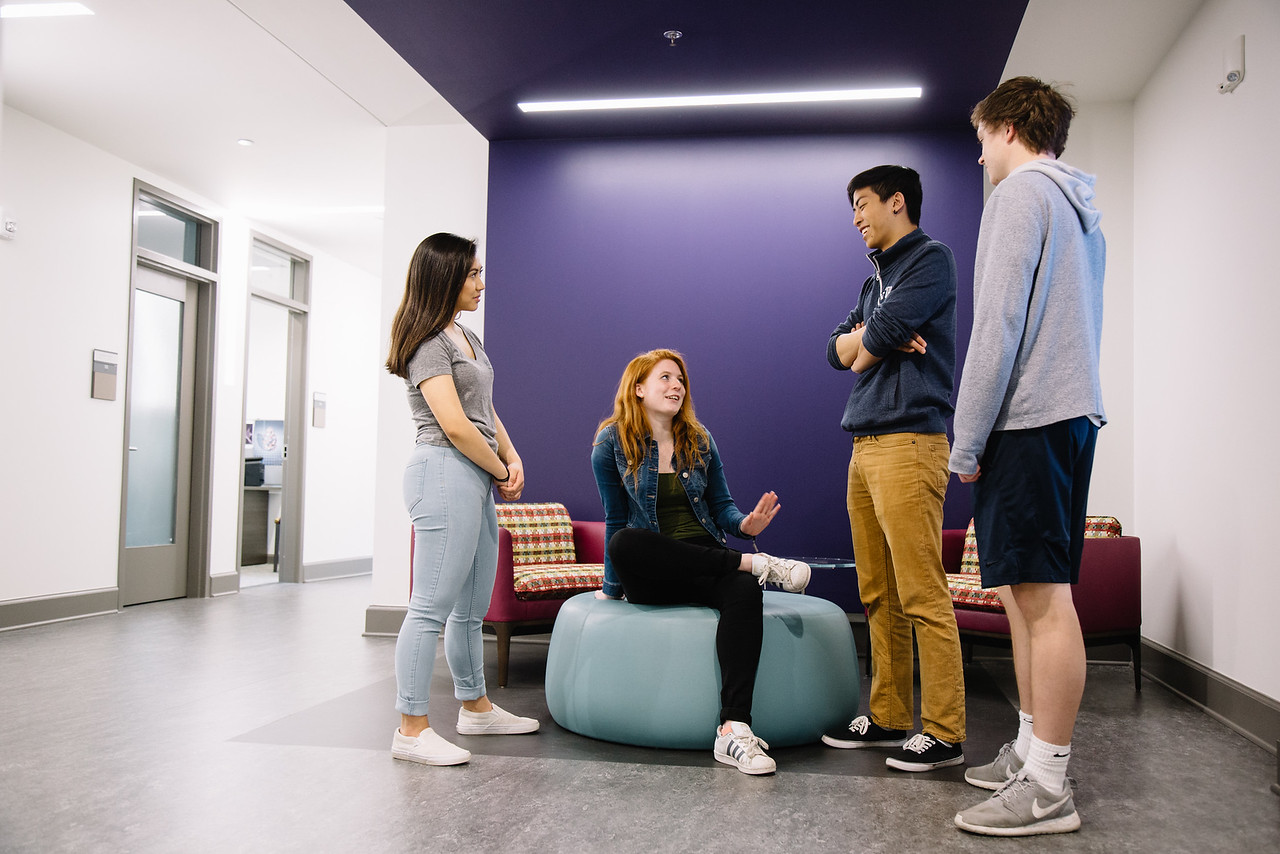Scott is a Vice Dean of Admission here at Emory University and has been in…
The Holistic Review Process
In the mind of an admission officer.
I was 25, in my first admission job, and I was reading through the first-year applications for admission to a large public research university. Back then, the university at which I worked read applications on a grid of GPA versus SAT/ACT scores. Admission decisions were almost entirely pre-determined based on the grid. We used conditional logic (IF this, AND this, THEN this) instead of holistic admission like we practice here at Emory. The grid was practical and straight-forward but lacked an approach that was comprehensive in nature.
It was during that year that I realized how a more nuanced approach to admission, beyond the numbers, would be the best fit for me personally. My belief in reviewing applications is that students are more than numbers on a page. Rather, they are products of their environments and experiences. Each of us brings a unique perspective to the classroom and a GPA and test score do not capture applicants’ many roles as students, citizens and people.
Here at Emory, holistic admission allows our admission officers to consider both objective and subjective assessments of applicants. Along with this, it requires them to be more knowledgeable of the institutional wants and needs. As a result, every first-year class aligns with Emory’s core mission and values. The selection process is driven by guiding principles of academic excellence, intellectual curiosity and the potential to contribute to community life on campus. All of these are underpinned by the values understood in our honor code and the creation of a global learning community.
Holistic admission is a term students and high school counselors often hear (endlessly) in the highly selective college admission space. It is an extremely labor-intense process and often requires years of training to do well. It demands the discipline of an Olympic athlete and a true love of critical reading and writing. This type of review allows colleges and universities to consider a range of factors and their importance during the review process. With a better picture constructed from the student’s context, we are able to confidently make a final decision. Because the educational resources of the United States (and the world for that matter) are not equitably distributed to all communities and high schools, understanding the scope of opportunity for a student is very important to our application review process. Being a good admission officer means you answer a lot of questions, but being a great admission officer means you ask a lot of questions.

Overall, there are a few key tenets to holistic review:
- Context is important. One of the reasons why our admission officers read applications from within a specific geographic area, is because admission officers develop, over time, a keen sense of what academic excellence looks like in particular high schools, states, and regions. Alongside their regional knowledge, they develop a familiarity with what is common and what is unique within their geographic region. In the end, each incoming class is filled with the best students from across Georgia, the United States, and around the world.
- High school academic work is critical. The academic history of a student is the foundation of the application and matters a lot during application review. Students seeking to enter a rigorous undergraduate liberal arts institution with world class faculty are tasked with demonstrating academic excellence at the secondary level. The best evidence of academic excellence is found on the high school transcript – it is the best predictor of academic success as Emory. The students do well in the most demanding courses available at the secondary level will find Emory appropriately challenging and be able to find success here. Standardized test scores (SAT or ACT) often provide additional insight into a student’s academic ability, and may also reveal a wealth or lack of access to resources (another factor considered during the review process). Subject tests and AP/IB scores shed some light into the applicant’s excellent in subject-specific comprehension. The high school transcript, however, is the highest-valued document. It takes four full years to create.
- When Emory University admission staff read applications of potential students, we have the campus community—both inside and outside the classroom—in mind. Our community is robust with musicians, debaters, scientists, poets, activists, and budding entrepreneurs to name a few. The intersectionality of our student body is a key component in what makes our community special, and our holistic review process allows us to value the intersectionality of our students. When students arrive on campus, they arrive as their full selves and we hope the experience on Emory’s campus allows them to grow, learn and share not just as students but as their full, multi-faceted self.
- The intellectual life of a student and their love of learning is often shown through their writing, the narratives from their teachers/counselors, and in time spent outside of the classroom. This is an intangible and subjective trait as it manifests itself in different ways for different students. Cultivating and awakening the life of the mind and supporting the quest for new knowledge is something we hope for our classrooms and community. Creative thoughts, pursuits and ideas are valued in our process. The joy of learning and sharing that knowledge is something our community cherishes. We therefore look for it carefully across all parts of the application.
- Committee-based evaluation means that your application is read and understood by more than one admission officer. We subsequently sit for larger committee after conducting the “first reading” of applications. There is not one admission officer who knows everything about Emory or interprets your application the same way. As such, we feel we’re stronger as a team than as individual readers. Upwards of seven (7) admission officers from across both Oxford College and Emory College come together as a committee to read applications. Bringing in multiple perspectives balances our review process – we may not always agree, but the full value of the process is found when more perspectives are considered and weighed. This process is not immutable. We look for opportunities to grow and evolve our process by developing, even more, the comprehensive, robust, and equitable nature of application review.
In the end, we make the best decisions we can on behalf of Emory, given the information we have in the time frame that we’re allotted. It’s not a perfect method by any means but it’s a structure which considers the full student and the values of the university and finds the intersection of those two spaces. It also means that when you arrive on campus as a student, you are a part of the larger fabric of the university community which defines you beyond the grades and scores. The intentionality behind the process means our academic community thrives with less-heard voices, global languages and original ideas across a range of disciplines all in the pursuit of improving the human condition.
Thinking back to my first year in admission, learning to read applications on a grid was a good foundation. But, learning holistic admission and all of its flaws and virtues ultimately allows us to create a community of young scholars who will go on to make the world a better place and go forth with all of their intersectionality. Their time on campus allows them to interact with world-class thinkers, solution-finders, dreamers, innovators and agents of change. Here, their views will be challenged, perhaps dismantled, perhaps affirmed and likely recreated because of the breadth of people they meet.
And that makes it all worth the work.

Mark E. Butt
Director of Undergraduate Selection
Office of Undergraduate Admission
Emory University
Mark Butt is the Director, Undergraduate Selection in the Office of Undergraduate Admission at Emory University. Mark is currently in his 15th year in undergraduate admission and oversees the freshman selection process with 25 admission officers at Emory University. On behalf of Emory, Mark travels and works with schools, students and college counselors in the Los Angeles metro area. Additionally, Mark covers Europe, and the Middle East. During his career, Mark has traveled to over 60 countries and as of the spring of 2022, has personally reviewed over 20,000 applications for freshman admission over his career. His previous work includes five years in undergraduate admission at Johns Hopkins University and he holds a Master’s Degree from the University of Pennsylvania. In his previous career, Mark was a nationally ranked figure skater in Canada and toured professionally with Disney on Ice. Mark is originally from Ottawa, Canada and resides full time with his partner in Atlanta, Georgia.
Add us to your Common App. Don’t hesitate to connect with us by posting a comment to this blog, tweeting us @emoryadmission, or emailing us at admission@emory.edu. We look forward to hearing from you!



The holistic application review process is great for me, as I can share many things beyond my scores. Moreover, if I get admitted to Emory, I will thrive because the admission officers have thorough knowledge about me.